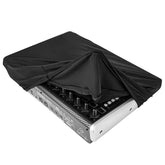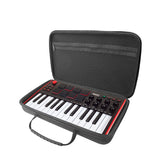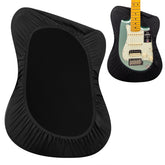Piano Practice Mastery: Nurturing Emotional Connection and Optimizing Efficiency
The learning of the piano is a complex psychological activity that requires the dedicated involvement of the pianist, and it is a working process that demands active control from the pianist.
A positive practice atmosphere is an essential element in improving the efficiency of piano practice.

(1) Genuine Inner Feelings
During the practice process, we often find ourselves in a state of complex mental and emotional turmoil, with countless decisions and distractions diverting our attention. At such times, it might be helpful to pause and listen to your inner voice, asking yourself, "What do I want to achieve right now?" When you take a few minutes to listen to your authentic inner voice before proceeding, you may discover more possibilities in your practice. These possibilities undoubtedly serve as a tonic to ignite your emotional connection with the piano, as maintaining your interest is crucial for a fresh and creative approach to practicing.
(2) Adjusting Psychological State
Pianists encounter various psychological obstacles during the learning process, which require timely self-control and adjustment. A positive mindset undoubtedly plays a proactive role in regulating the emotional aspects of piano practice. It's common to feel a sense of inadequacy when starting to learn the piano later in life. The process of practice is, in essence, a continual self-challenge. Regardless of your state or circumstances, adjusting your mindset to face challenges optimistically is essential. As pianist Hofmann once said: "Learn earnestly and enthusiastically, finding joy in your diligence, not just in your achievements."
(3) Adequate Physical Exercise
Piano players tend to sit for extended periods, which can negatively impact physical well-being. Prolonged sitting may lead to physical fatigue and emotional lows. Therefore, engaging in appropriate physical exercise can improve this situation and keep you energized. Some health experts recommend stretching the muscles used for playing the instrument before and after piano practice. Additionally, stretching the back is crucial because, regardless of the instrument played, the body's energy needs to flow into the instrument to produce sound. Popular yoga practices can be beneficial for pianists, promoting flexibility, strength, and muscle usage to avoid occupational injuries.
There are various methods to enhance piano practice efficiency, and it varies from one practitioner to another. However, it is essential to recognize that piano practice is an art, an intelligent learning process that requires continuous reflection and experience. Finding the most suitable practice approach for oneself during the practical process can lead to significantly increased results with less effort.






